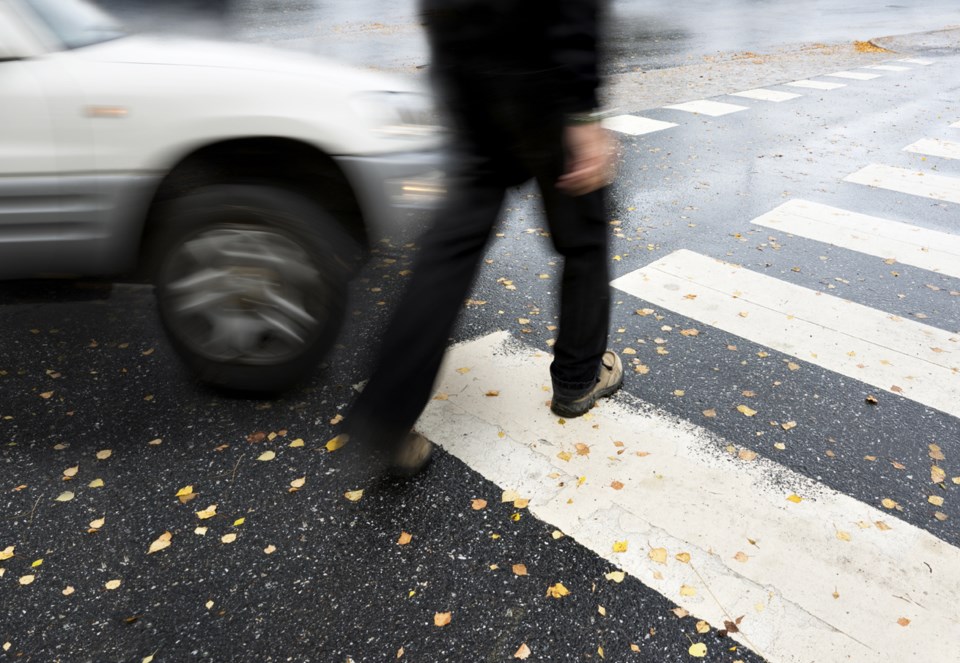Coun. Patrick Johnstone wants the city to strengthen protections for pedestrians – and to remove references to jaywalking – from its bylaws.
Council recently received a bylaw notice enforcement housekeeping amendment bylaw that outlines fines levied under the Municipal Ticketing Information and Bylaw Offence Notice systems, two mechanisms under which the city can fine people for not complying with bylaws.
“I think we need to remove the word jaywalking from our bylaw and from the fines. Jaywalking is a pejorative term. It has a whole bunch of classist and racist history to it,” Johnstone said. “I know we use it today in a colloquial way that doesn’t necessarily carry all the baggage that it used to carry, but I don’t think it fits our modern thinking about how our road spaces are used.”
Several websites suggest the term jaywalking was used at a time when motorists tended to be wealthier and pedestrians were working-class people. The term “jay” was once slang for a stupid or foolish person, so people who ignored traffic regulations or walked into traffic were called jaywalkers (which was adapted from jay drivers, who were people who drove all over the road and confused other drivers).
“I am happy to talk about pedestrians not following the rules of the road,” Johnstone said. “I don’t want to use that pejorative term.”
While he didn’t want to stall approval of the bylaw because he feels many of the changes being made to fines are positive, Johnstone said he’d like council to discuss some of the fines related to pedestrian protection in the next year. He doesn’t think the city goes far enough in terms of fines for violations that create a risk to pedestrians.
“Cars not yielding to pedestrians in crosswalks is the cause of about 2,000 injuries in British Columbia every year and about 50 deaths. It is the single-most common cause of pedestrian injury or death in British Columbia, that one action,” he said. “I think that is one thing that is under-enforced and there is not enough concern about that particular violation.”
Johnstone would like the city to take a look at fine adjustments that could help protect vulnerable road users.
Amendments contained in the bylaw relate to a wide range of offences, including: evicting without permits or without relocating a tenant; discarding burning or smoking material into combustible material; obstructing a road or driveway; having an open fire without a permit; distributing or posting material or graffiti on park property; allowing smoking where prohibited; failing to yield to a pedestrian in a crosswalk; and failing or remove snow, ice and rubbish,
Coun. Chuck Puchmayr, the lone council member to oppose the bylaw, said council didn’t have a lot of time to “drill into” the changes being proposed, and he’d like to see a better review of the various fines being proposed. While there are limits to the fines the city can charge, he wants assurances that people are educated about the city’s regulations before they’re subjected to extreme fines that can cause anxiety for some businesses and individuals.
“I know that some of these are really important and we need to go forward with them, but I am not supportive of the extremes. I think that they need to be tempered,” he said. “I need something from staff that shows me that that’s being tempered and they are only being used as an extreme impact for valid and bonafide reasons. I don’t see that in this document, so I am very concerned with that.”



